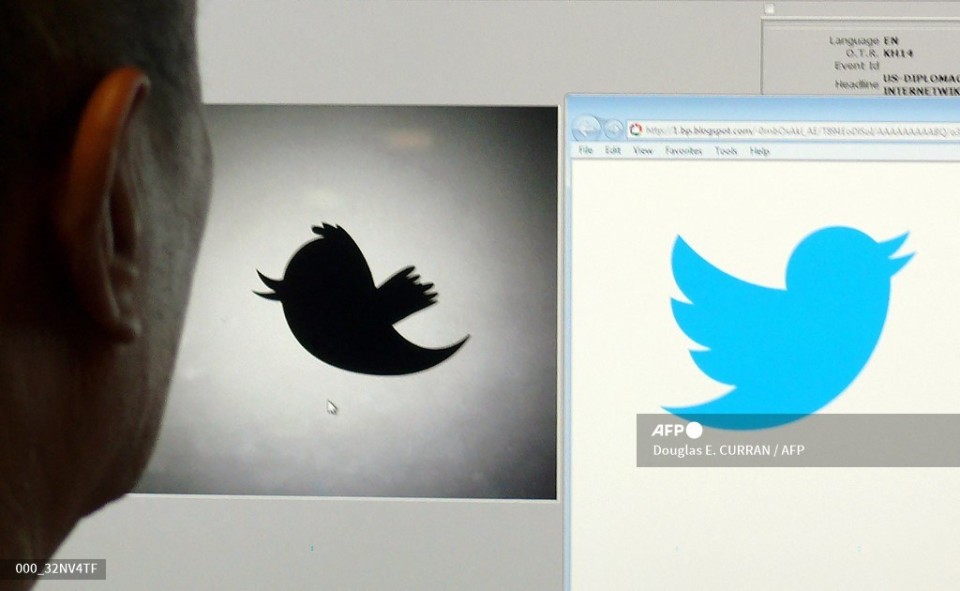
San Francisco, United States | AFP |
After turning Twitter upside down, Elon Musk on Tuesday tried to clarify his plans for content moderation, a key issue for the future of the influential platform after the departure of advertisers and top executives.
Musk on Friday said he had reinstated certain banned accounts on his site, but added that no decision had been made on welcoming back former US president Donald Trump.
Twitter watchers have been tracking closely to see whether Musk will reinstate Trump, banned for inciting last year’s attack on the Capitol by a mob seeking to overturn the results of the 2020 election.
The reinstatement of accounts ousted for violating Twitter’s content moderation rules has been seen as a bellwether of where Musk, a self-described “free speech absolutist,” wants to take the site.
In the same blast of tweets, Musk unveiled a new method for handling future hateful or “negative” content that seemed to seek a balancing act between unadulterated free speech and some form of policing on the site.
Finding a solution to content moderation became especially urgent after Musk’s fist major rejig to the site — expanding a paid subscription service — sparked an embarrassing spate of fake accounts that sent advertisers running.
“New Twitter policy is freedom of speech, but not freedom of reach,” Musk tweeted on Friday.
“Negative/hate tweets will be max deboosted & demonetized, so no ads or other revenue to Twitter,” he wrote.
– ‘Core principle’ –
In essence, Musk seemed to be pointing to a policy similar to strategies at YouTube, the Google-owned video platform, where some provocative content is given less priority in the site’s algorithm, but is not entirely taken down.
“You won’t find the tweet unless you specifically seek it out, which is no different from the rest of the Internet,” Musk said.
Ella Girwin, his newly installed chief of trust and safety, called Musk’s approach “a core principle for Twitter… helping us ensure we maintain a healthy platform.”
To make his point, Musk then announced the reinstatement of three twitter accounts that had been banished for violating Twitter’s content moderation policies.
Canadian psychologist Jordan Peterson was suspended from Twitter in June, before Musk’s ownership, following a post about transgender actor Elliot Page that broke the site’s rules on hateful conduct.
Peterson had often made comments against the rights of transgender people and was asked by Twitter to remove the post on Page.
The Babylon Bee, a conservative parody site, was banned in March for similar tweets against Rachel Levine, a trans woman serving as US assistant secretary of health.
The third account, belonging to comedian Kathy Griffin, was banned earlier this month when Musk cracked down on accounts that impersonated others.
Griffin, who has two million Twitter followers, switched her username to Elon Musk, taking advantage of the website’s relaxed oversight under the billionaire.
– ‘Catastrophic’ –
In an opinion piece in the New York Times, Twitter’s former content chief Yoel Roth said it was a “near certainty” that Trump would be returned to the site.
Expanding at length on why he had left Twitter last week after seven years, Roth said that Musk was facing a huge challenge to achieve his free speech vision.
Roth warned his former boss that advertisers, which he “neither controls nor has managed to win over,” would pose a clear threat to his revenue stream if they were spooked by the site’s direction.
And even if he found another way to make money, regulators in the United States, Europe and India were also wary, threatening Twitter with big fines or government interference if the platform fails to play by the rules.
But most of all, Roth said it will be the app stores run by Apple and Google’s Android that hold the greatest sway over the future of Twitter.
“Failure to adhere to Apple and Google’s guidelines would be catastrophic,” Roth warned.
Their often vague rules on content could see access by users to Twitter’s phone app switched off immediately and by diktat from competing big tech companies.
“Twitter will have to balance its new owner’s goals against the practical realities of life on Apple and Google’s internet,” said Roth.
© Agence France-Presse








